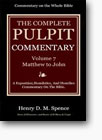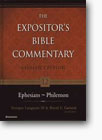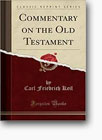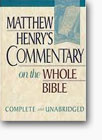The Doctrine of Immortality in the Early Church
by Dr. John H. Roller
THE QUESTION ANSWERED
On page 4 of this book, our topic for discussion was defined as follows: "What can we learn from the writings of the early Church Fathers as to the position(s) held in their times on the subject of human immortality? Specifically, we will want to see whether the Apostolic, Sub-Apostolic, and Ante-Nicene Fathers of the first, second and third centuries held a view similar to the popular modern view, or one more similar to the Conditionalist view."
After defining the two views, and labeling them, for convenience, as "Naturalism" and "Conditionalism," respectively, I have reviewed the lives and works of twelve Apostolic, seven Sub-Apostolic, and eleven Ante-Nicene Fathers, whose writings span the period from AD 95 tosometime between AD 303 and 310. As I said on page 9, we have not studied every Christian writer of the first three centuries, but we have studied every Christian writer of the first three centuries in whose works I was able to find any references to the subject of human immortality.
Each of the thirty writers has been classified as either Conditionalist or Naturalist. Now the time has come to ask: What have we learned from this exercise?
It seems to me that the first, and perhaps most important, thing we have learned is that in the early Church, just as in the present-day Church, there were true, sincere Christians of both of the two doctrinal persuasions we have been studying. We have also seen that there was frequently an energetic, at times even vituperative, "debate" going on between the representatives of the two positions. Nevertheless, it is important to note that all of this was taking place within the broader context of the universal Christian fellowship which was generally known at the time as the "Catholic" Church. This was not primarily an argument between Christians and non-Christians, nor was it a "fight" between orthodox Christians and unorthodox cultists. It was, in fact, a doctrinal discussion between individuals, and among groups, all of whom were members of the same worldwide Body of Christ, the Christian Church.
The second, and next most important, thing we have learned is that, during the period under study, Conditionalism, and not (as it is today) Naturalism, was the more prevalent view of the writing Fathers of the Church. This fact can be demonstrated by a simple enumeration, as follows:
Conditionalists: 16 definite, 4 probable —total, 20
Naturalists: 8 definite, 1 probable —total, 9 Unclassified: 1
So Conditionalism was favored over Naturalism by approximately a 2/3 majority of the thirty Fathers we have been able to classify.
Another question worth asking is: Was this a regional conflict? Were the Fathers in one geographical area more inclined to Conditionalism, and the Fathers in another more inclined to Naturalism? The following chart will illustrate the surprising answer to this question:
Region Conditionalists Naturalists
Asia 8 or 9 1 Europe 7 2 Africa 2 or 3 5 (Unknown) 2 1
When you come to the next paragraph, you will see the reason why there seems to have been such a predominance of Conditionalism in Asia, the continent on which Christianity originated. The "surprise" is to see the contrast between the predominance of Conditionalism in Europe, the continent which later became the "world headquarters" of Christianity, and the predominance of Naturalism in Africa, the continent on which Christianity later became virtually extinct. One would have thought it would have been the other way around! What the chart really shows is that both Conditionalists and Naturalists could be found in all three areas of the world that were influenced by Christianity in the early centuries. I do not believe it shows that geography, or regionalism, really played a very important role in the debate at that time.
It seems to me that a much more significant role was played by the passage of time. The chart on the next page is constructed so as to illustrate the "progress" of the two doctrines over the period of time covered by the study. It lists each Church Father under the appropriate heading in chronological order from the time of the Apostles (at the top of the page) toward the time of the Council of Nicaea (at the bottom).
Conditionalists Naturalists
__________________________________________________________________________________________
Clement of Rome Writer(s) of Odes of Solomon
Ignatius of Antioch
Polycarp of Smyrna
Papias of Hierapolis
Writer(s) of Didache
Quadratus of Athens
Mathetes
Clement of Corinth
Barnabas of Alexandria
Aristides of Athens
Hermas of Rome
Justin of Samaria
Tatian of Assyria
Theophilus of Antioch
Melito of Sardis
Athenagoras of Athens
Polycrates of Ephesus
Irenaeus of Lyons
Clement of Alexandria (unclassified)
Tertullian of Carthage
Hippolytus of Portus
Romanus Writer(s) of Pseudo-Clementines
Minucius Felix of Africa
Origen of Alexandria
Commodianus of Africa
Cyprian of Carthage
Novatian of Rome
Gregory Thaumaturgus of Neo-Caesarea
Arnobius of Sicca
Looked at this way, the "score" becomes:
Prior to the time of Clement of Alexandria — 18 Conditionalists, 1 Naturalist
After the time of Clement of Alexandria — 2 Conditionalists, 8 Naturalists
It is clear from this chart that Conditionalism was the original doctrine of the Early Church (AD 95-177), and that Naturalism was first introduced by Athenagoras of Athens, and popularized by Tertullian of Carthage, after whose time it rapidly became the predominant view, though there continued to be an outspoken minority of Conditionalists.
Now it becomes clearer why Conditionalism was so much stronger in Asia during the first three centuries than it was in Europe and Africa. Asia was the continent on which Christianity originated. The churches of Asia held more tenaciously to the original doctrine (Conditionalism) while the churches in Europe and Africa were progressively coming under the influence of the more recent doctrine (Naturalism).
Outside the defined scope of this book, but certainly within the pale of relevance to its topic, is the question of how the debate between proponents of the two doctrines proceeded after the Council of Nicaea (AD 325). Briefly, the answer to this question is that the debate continued, with a higher and higher percentage of the Post-Nicene writers embracing Naturalism as the centuries passed. At no point was unanimity reached. Finally, in AD 1513, the Fifth Lateran Council of the Roman Catholic Church officially condemned Conditionalism as heresy. Even then, however, the debate did not end. Only four years later, Martin Luther broke with Roman Catholicism and began the movement known today as Protestantism. He, and many other early Protestant leaders, such as John Wycliffe, William Tyndale, John Milton, and John Darby, revived the ancient belief in Conditional Immortality. Other reformers were Naturalists. So, while the debate was ended in the Roman Catholic Church, by official decree, it quickly sprang up again in the Protestant churches, and continues (there) to this day. As I mentioned in the Introduction, some denominations have taken an official "stand" for one position or the other. Many other denominations have kept their doors open to Christians of either persuasion. The "debate" continues.
CONCLUDING REMARKS
We have seen that there are two radically different opinions on the question of human immortality: we have come to know them as Naturalism and Conditionalism. We have also seen that throughout most of Christian history a "debate" has raged between proponents of the two positions. Furthermore, we have discovered that almost all of the Church Fathers who wrote before AD 200 were Conditionalists, and that most of those who wrote between then and AD 310 were Naturalists. We have concluded that Conditional Immortality was the original, and predominant, doctrine of the early Church.
At this point I think it would be wise to reiterate that I have not sought to "prove" the correctness or incorrectness of either doctrine. I have only sought to determine which view was more prevalent in the early Church. That is why I have quoted extensively from the writings of the early Church Fathers and have not quoted frequently from the Holy Scriptures. I am by no means trying to imply that the Bible has nothing to say on this subject: on the contrary, it has so much to say that a much, much longer book would be required to cover it all. Nor am I implying that what the Bible says is not important. Rather, it is my belief that whatever the Bible teaches on this subject is of absolute and decisive importance. But it was the stated purpose of this paper to analyze the views of the early Church, and the Bible's comments are therefore outside the defined scope of the book.
Is immortality natural, or conditional? If there were a simple, clear, Biblical answer to this question, there would not have been debate over it for over eighteen centuries of Christian history. As I have already quoted Arnobius of Sicca as saying, "On the one hand, arguments present themselves to the one party by which it is found that the soul is capable of suffering, and perishable; and, on the other hand, are not lacking to their opponents, by which it is shown that the soul is divine and immortal." (Disputations 31:3) That being the case, I think it best for modern churches to keep an open door to Christians of either persuasion, rather than insisting that members be required to affirm either one doctrine or the other. Truth is not determined by majority vote, nor is it determined by ecclesiastical decree. Each Christian should have the freedom to make up his or her own mind as to what to believe on this question, rather than having a prepackaged answer imposed on the conscience by a denominational Statement of Faith. In the final analysis, only God knows the true answer, and only when we see Him face to face will we know it as fully as He does.
_______________________________________
For more information, contact: Dr. John H. Roller 5847 Brookstone Dr. Concord, NC, USA 28027-2535 704-782-9574
johnroller@faithbiblechristian.com











Comments